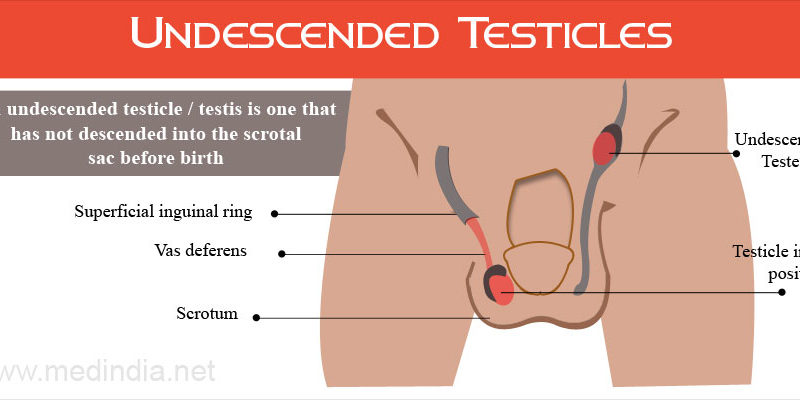A new study has suggested that baby boys born with undescended testicles are more likely to suffer from cancer and infertility when they become adults.
The Australian study discovered that male infants who are born with their testicles in their abdomens rather than their scrotums are 2.4 times more at risk of testicular cancer as adults than those without the birth defect.
It also revealed that having undescended testicles at birth, known as cryptorchidism, also makes men twice as likely to seek fertility treatments.
According to the NHS, undescended testicles occurs when a baby boy’s testicles are in his abdomen rather than his scrotum. In most cases the testicles gradually move down after three-to-six months.
However, around one in 100 boys have testicles that will stay undescended unless treated.
During pregnancy, a boy’s testicles form in his abdomen and move down to the scrotum one-to-two months before birth. It is unclear why some boys are born with their testicles undescended, with most cases being otherwise healthy, the NHS said.
Being born prematurely, having a low birth weight and a family history of the condition all raise a boy’s risk of cryptorchidism.
If necessary, treatment usually involves an operation, called an orchidopexy, to move the testicles to their correct position. NHS suggest that surgery should be carried out before a boy’s first birthday.
According to MailOnline previous research suggests testicles reach a higher temperature when in the abdomen, which may trigger tumour development in later life. The link between cryptorchidism and cancer is unclear.
Testicles are on the outside of the body due to sperm production taking place at 35°C, which is 2°C cooler than body temperature.
Researchers from the University of Sydney analysed 350,835 boys who were born in Western Australia between 1970 and 1999. The participants were followed until 2016.
Data registers were examined to determine if the participants had any birth defects, hospital admissions or cancer diagnoses, as well as if they underwent assisted reproduction treatments.
The findings were published in the journal The Lancet Child and Adolescent Health.
Study author Professor Natasha Nassar said: “The study provides new evidence to support international guidelines recommending surgery before 18 months for boys with undescended testes to reduce the risk of both testicular cancer and infertility later in life.”

 Join Daily Trust WhatsApp Community For Quick Access To News and Happenings Around You.
Join Daily Trust WhatsApp Community For Quick Access To News and Happenings Around You.


